Medicine For Bacterial Infection


Medications for treating bacterial infections are antibiotics, which are useful in treating infections of different parts of the body, such as the skin, ear, nose, throat, respiratory tract, genitals, and urinary tract. These medications work by inhibiting or killing the bacteria and preventing the infection from spreading.
Benefits of medication for bacterial infection:
- Bacteriostatic: Inhibits bacterial growth and prevents infection.
- Bactericidal: Kills the bacteria and prevents the transmission of bacteria.
- Specific target: Antibiotics work by inhibiting particular bacterial growth and killing them.
- Efficacy: Highly effective against throat infections, pneumonia (lung infection), and urinary tract infections.
- Used in Prophylaxis: Prevents infection in patients undergoing surgery or with weak immunity.
How does medication for a bacterial infection work?
Medication for treating bacterial infection works by inhibiting and killing the bacteria and preventing the infection from spreading.
What to avoid?
The following things should be avoided while taking medicine:
- Avoid alcohol: Restrict alcohol use while taking antibiotics, as it can cause nausea and vomiting.
- Calcium-rich foods: Avoid calcium-rich foods such as cheese, coffee creamer, milk, yogurt, or butter, as antibiotics can interact with calcium and decrease absorption.
- High acidic food: Always avoid highly acidic foods such as grapefruit, orange, and soda, as the acid present in these can decrease the absorption of antibiotics.
List of Generic Medicine for bacterial infection in India:
| Medication Name | Benefits |
|---|---|
| Amoxicillin | Treats various bacterial infections such as skin, ear, nose, throat, respiratory infections, and urinary infections. |
| Azithromycin | Used in infections of the respiratory tract, skin, and sexually transmitted diseases. |
| Ciprofloxacin | Effective against ear, nose, throat, respiratory infections, urinary tract infections, and skin infections. |
| Doxycycline | Treats infections of the respiratory tract and skin. |
| Cephalexin | Useful in pneumonia, infections of the skin, bone, ear, genital, and urinary tract. |
| Ceftriaxone | Effective against infections of the respiratory tract, urinary tract, bone, joints, and meningitis. |
| Metronidazole | Treats sexually transmitted infections and parasitic infections. |
List of Zeelab Generic Medicine for bacterial infection in India:
| Medicine Name | Composition | Benefit |
|---|---|---|
| Amoxible 250 Antibiotic Capsule | Amoxicillin 250 mg | Used as an antibacterial. Prevents bacterial growth and kills bacteria. Treats infections of the blood, brain, joints, lungs, bones, abdomen, intestine, and urinary tract. |
| Amoxible CL 625 Antibiotic Tablet | Amoxycillin 500mg + Clavulanic Acid 125mg | Treats ear, nose, throat, skin, abdominal, and urinary tract infections. |
| Levoziv 500 Tablet | Levofloxacin 500 mg | Inhibits bacterial growth and kills them. Useful in treating bacterial infections of the urinary tract, nose, throat, skin, and lungs. |
| Sefjim 200 Antibacterial Tablet | Cefixime 200 mg | Broad-spectrum antibiotic, fast-acting, and reduces the risk of antibiotic resistance. |
| Bactran DS Tablet | - | Effective against pneumonia, bronchitis, urinary tract infections, ear infections, and abdominal infections. |
Do not take any medicine without a doctor’s consultation. Self-medication can be harmful to your health
When to see a doctor?
See a doctor if you have the following symptoms while taking medication for a bacterial infection:
- In case of bacterial infection signs: If you have symptoms of a bacterial infection such as fever, chills, headache, and tiredness.
- Symptoms not improving: If antibiotic use is ineffective or unable to relieve infection signs, then one should seek medical attention.
- Worsening of symptoms: If symptoms worsen after antibiotic treatment.
- Persistent bacterial infection: If the infection remains in the body for a long time.
Summary:
Medications for treating bacterial infections are antibiotics. The main role of antibiotics is to inhibit, kill, and prevent the spread of infection. Medication choice depends on the type of infection and the underlying condition being treated. Early detection and proper treatment are important to prevent complications and the spread of infection. Increasing awareness and proper antibiotic use are essential for effective treatment, preventing antibiotic resistance, and improving public health.
Frequently Asked Questions (FAQs):
Q: What are medications for bacterial infection used for?
A: Medications for bacterial infection are used to inhibit and kill bacteria and prevent the spread of infection.
Q: How to take medications for a bacterial infection?
A: Take the medicine as prescribed by the doctor.
Q: Can antibiotics treat viral infections?
A: No. Antibiotics cannot treat viral infections. They only work against bacterial infections.
Q: What are the common side effects of antibiotics?
A: Generally, no side effects are seen; however, in some cases, mild gastric disturbances can occur.
Q: What happens if I stop taking antibiotics early?
A: Stopping treatment early can result in the return of symptoms and the development of antibiotic resistance.
Amoxycillin (500mg) + Clavulanic Acid (125mg)
10 Tablets In 1 Strip
Sulfamethoxazole (800mg) + Trimethoprim (160mg)
10 Tablets in 1 strip
Recent Blogs
Disclaimer : Zeelab Pharmacy provides health information for knowledge only. Do not self-medicate. Always consult a qualified doctor before starting, stopping, or changing any medicine or treatment.

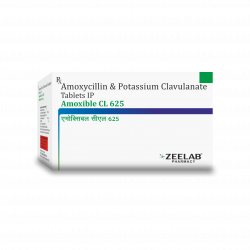
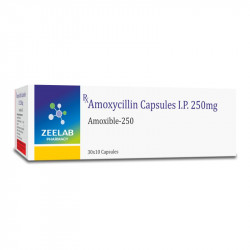
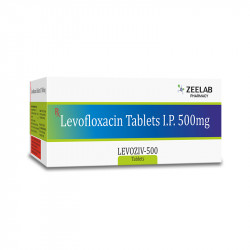
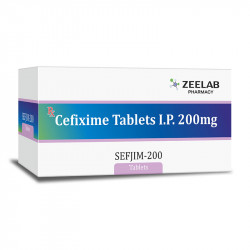
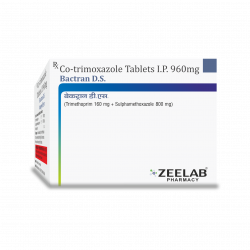















 Added!
Added!